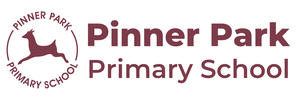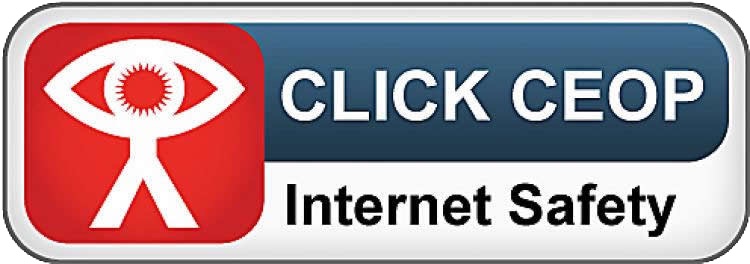Homework - An information guide for parents
This information guide seeks to inform you as to our rationale and our procedures with regard to homework. If anything is unclear, please do speak to your child’s class teacher or send an email to your child’s year group team.
Why set homework?
We set home learning activities because these activities can:
We recognise that children learn in so many other ways – by baking, by playing games, by using the computer, by attending dance, brownies, football or places of worship, and by visiting new places, libraries, parks and museums. We want to encourage these types of home learning and we have, therefore, set a level of homework and a time schedule that allows space for these.
At the heart of our approach to homework is the desire to ensure that each child attains the very best in the basic skills of English and mathematics. Homework can support and reinforce the learning in class – especially by practising the core skills.
Why set homework?
We set home learning activities because these activities can:
- Support the ‘little and often’ approach that is so key in learning (practise, practise, practise!)
- Provide opportunities for independent study that consolidates the work done in the classroom.
- Link learning at school and in the home
We recognise that children learn in so many other ways – by baking, by playing games, by using the computer, by attending dance, brownies, football or places of worship, and by visiting new places, libraries, parks and museums. We want to encourage these types of home learning and we have, therefore, set a level of homework and a time schedule that allows space for these.
At the heart of our approach to homework is the desire to ensure that each child attains the very best in the basic skills of English and mathematics. Homework can support and reinforce the learning in class – especially by practising the core skills.
Year Group |
Regular Reading |
Number Bonds and/or Times Tables |
Phonics and spelling |
Online Maths |
Weekly written English tasks |
Reception |
Yes |
Yes (number recognition and counting) |
- |
- |
- |
Years 1 and 2 |
Yes |
Yes |
Yes |
From Year 2 |
From Year 2 |
Years 3 and 4 |
Yes |
Yes |
Yes |
Yes |
Yes |
Years 5 and 6 |
Yes |
Yes |
Yes |
Yes |
Yes |
Regular Reading
Regular reading with an adult using:
Each child in the school will be given a reading record in which parents should record the daily reading that your child is undertaking. As children get older, they will take more responsibility for completing the record.
We recommended that readers spend at least 15 minutes reading each day. We are currently changing reading and/or library books on Tuesdays and Fridays. You are welcome to read other books from home, library or online and record these in the reading record.
Number Bonds and/or Times Tables
By the end of Reception, children should be able to count reliably with numbers from 1 to 20, place them in order and say which number is one more or one less than a given number. Lots of practice with counting, recognising numbers and number games will really help with this important skill.
Number bonds are also often referred to as 'number pairs'. They are simply the pairs of numbers that make up a given number. For example, the number bonds to 10 are: 0 + 10, 1 + 9, 2 + 8, 3 + 7, 4 + 6, 5 + 5. Children start to learn about number bonds in the Foundation stage, when they might be given a number, such as 5, and then asked to select two groups of objects that will add up to that number. In Year 1, children are expected to know number bonds up to 20.
When it comes to times tables, speed AND accuracy are important – the more facts your child remembers, the easier it is for them to do harder calculations. We want all children to learn their times tables (up to 12 x 12) and the corresponding division facts by the end of Year 4 – they should be able to recall the facts ‘rapidly and randomly’.
We use two online resources to support these skills – Numbots (for younger children) and Times Tables Rockstars for older children.
Numbots and Times Tables Rockstars have the maximum effect when used little and often. Please encourage your child to spend a short time on these apps at least three or four times per week.
Phonics and Spelling
Spelling is best taught alongside reading and writing activities. When Reception children learn to blend their first few sounds, they are already learning spellings. From this point forward, we continue to teach spelling alongside reading and writing activities in class.
In addition, we will send home sets of words with a particular sound or spelling pattern. We may also ask a child to learn high frequency words (those most often used) if this is identified as something he or she would benefit from. For older children, they will be asked to undertake an activity related to a particular theme – for example, a sound, prefix or suffix, root word or spelling rule.
Online Maths and Mathletics
Mathletics is an online maths resource which enables your child to learn maths in a fun way at home. Children can get creative and design their own avatar, giving them the chance to connect personally with the world of Mathletics. Mathletics builds children’s confidence and helps your child to make great progress in maths.
From Year 3, we ask every child to complete the set Mathletics tasks each week. Your child’s class teacher will also set a number of activities to complete.
In Year 2, online maths tasks will be set using DB Primary, Education City, or an alternative online resource.
Written English Tasks
From Year 2, we will set weekly English tasks to support the learning in class. These will reinforce some of the key skills such as grammar, punctuation and reading comprehension, or may be a piece of writing related to the learning in school (this may have a focus relating to another subject area such as history or science).
These will be set on the same day each week and the children will be asked to return the work on time. Homework will be set on a Friday and it should be completed and handed in by the following Thursday. Some of the work will be set online through DB Primary and Microsoft Teams – this work can often be handed in online.
Additional Tasks
In addition, from time to time, children may be asked to undertake an activity at home or ‘gather’ something for use in class. For example, when a class starts a topic on ‘holidays’, a class teacher may ask the children to bring in a photo or a postcard. This is not a homework task, as such, but does support the learning in school and in the home.
We are also always happy to hear about things that you have been doing at home and children are always keen to show their teachers things and to share exciting news!
Clear Expectations
We set homework activities which will provide the maximum benefit to your child’s learning in school. We believe that our approach provides opportunities for other learning, and fun activities, outside of school. That said, we do fully expect the home learning tasks to be completed, to a high standard, and on time. We will speak with you if we are concerned that your child is not completing their home learning tasks.
User Accounts for Online Resources
Your child will have a user name and password for any of the online resources we use. These will be written in their reading record book, so that they are always available to you. Please remember not to share user account details with anyone else.
And finally…
At the heart of our work is the belief that parents are partners in their children’s education. We hope that this short guide has been useful in explaining our approach to homework and how you can help at home.
Please do ask if you have any further questions on these issues. The year group email addresses are a good starting point for homework queries.
Regular reading with an adult using:
- For younger children, practising phonics sounds and blending
- Books that can be shared and enjoyed together
- Texts that the child can read using his or her phonic knowledge
Each child in the school will be given a reading record in which parents should record the daily reading that your child is undertaking. As children get older, they will take more responsibility for completing the record.
We recommended that readers spend at least 15 minutes reading each day. We are currently changing reading and/or library books on Tuesdays and Fridays. You are welcome to read other books from home, library or online and record these in the reading record.
Number Bonds and/or Times Tables
By the end of Reception, children should be able to count reliably with numbers from 1 to 20, place them in order and say which number is one more or one less than a given number. Lots of practice with counting, recognising numbers and number games will really help with this important skill.
Number bonds are also often referred to as 'number pairs'. They are simply the pairs of numbers that make up a given number. For example, the number bonds to 10 are: 0 + 10, 1 + 9, 2 + 8, 3 + 7, 4 + 6, 5 + 5. Children start to learn about number bonds in the Foundation stage, when they might be given a number, such as 5, and then asked to select two groups of objects that will add up to that number. In Year 1, children are expected to know number bonds up to 20.
When it comes to times tables, speed AND accuracy are important – the more facts your child remembers, the easier it is for them to do harder calculations. We want all children to learn their times tables (up to 12 x 12) and the corresponding division facts by the end of Year 4 – they should be able to recall the facts ‘rapidly and randomly’.
We use two online resources to support these skills – Numbots (for younger children) and Times Tables Rockstars for older children.
Numbots and Times Tables Rockstars have the maximum effect when used little and often. Please encourage your child to spend a short time on these apps at least three or four times per week.
Phonics and Spelling
Spelling is best taught alongside reading and writing activities. When Reception children learn to blend their first few sounds, they are already learning spellings. From this point forward, we continue to teach spelling alongside reading and writing activities in class.
In addition, we will send home sets of words with a particular sound or spelling pattern. We may also ask a child to learn high frequency words (those most often used) if this is identified as something he or she would benefit from. For older children, they will be asked to undertake an activity related to a particular theme – for example, a sound, prefix or suffix, root word or spelling rule.
Online Maths and Mathletics
Mathletics is an online maths resource which enables your child to learn maths in a fun way at home. Children can get creative and design their own avatar, giving them the chance to connect personally with the world of Mathletics. Mathletics builds children’s confidence and helps your child to make great progress in maths.
From Year 3, we ask every child to complete the set Mathletics tasks each week. Your child’s class teacher will also set a number of activities to complete.
In Year 2, online maths tasks will be set using DB Primary, Education City, or an alternative online resource.
Written English Tasks
From Year 2, we will set weekly English tasks to support the learning in class. These will reinforce some of the key skills such as grammar, punctuation and reading comprehension, or may be a piece of writing related to the learning in school (this may have a focus relating to another subject area such as history or science).
These will be set on the same day each week and the children will be asked to return the work on time. Homework will be set on a Friday and it should be completed and handed in by the following Thursday. Some of the work will be set online through DB Primary and Microsoft Teams – this work can often be handed in online.
Additional Tasks
In addition, from time to time, children may be asked to undertake an activity at home or ‘gather’ something for use in class. For example, when a class starts a topic on ‘holidays’, a class teacher may ask the children to bring in a photo or a postcard. This is not a homework task, as such, but does support the learning in school and in the home.
We are also always happy to hear about things that you have been doing at home and children are always keen to show their teachers things and to share exciting news!
Clear Expectations
We set homework activities which will provide the maximum benefit to your child’s learning in school. We believe that our approach provides opportunities for other learning, and fun activities, outside of school. That said, we do fully expect the home learning tasks to be completed, to a high standard, and on time. We will speak with you if we are concerned that your child is not completing their home learning tasks.
User Accounts for Online Resources
Your child will have a user name and password for any of the online resources we use. These will be written in their reading record book, so that they are always available to you. Please remember not to share user account details with anyone else.
And finally…
At the heart of our work is the belief that parents are partners in their children’s education. We hope that this short guide has been useful in explaining our approach to homework and how you can help at home.
Please do ask if you have any further questions on these issues. The year group email addresses are a good starting point for homework queries.



